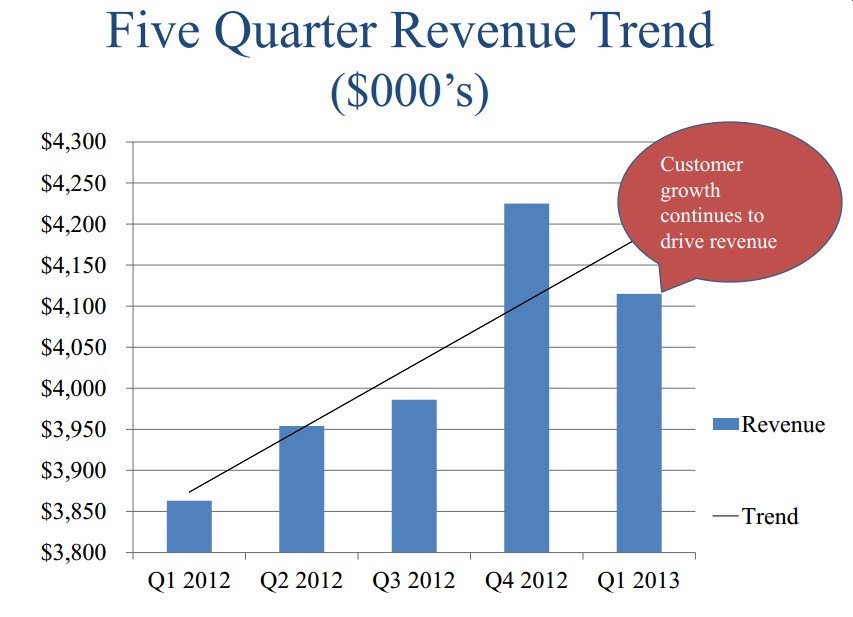 A community-owned cable system that critics called “a municipal broadband failure” is proving to be anything but as it aggressively launches a broadband speed war and is narrowing its losses on the road to profitability.
A community-owned cable system that critics called “a municipal broadband failure” is proving to be anything but as it aggressively launches a broadband speed war and is narrowing its losses on the road to profitability.
MI-Connection is the community-owned cable system serving Mooresville, Davidson, and Cornelius, N.C.
Originally acquired in 2007 from bankrupt Adelphia Cable, MI-Connection has been a favorite target for municipal broadband critics who have painted the operation as an experiment gone wrong and a financial failure. But the system’s latest financial results and its forthcoming free broadband speed upgrades tell a different story.
Residents will see major boosts in their broadband speeds for no additional charge in December thanks to a broadband service upgrade. Meanwhile, competitor Time Warner Cable has announced new fees for cable modem rentals that will raise many customer bills by $4 a month. (MI-Connection does not charge customers a rental fee when they have just one cable modem on their account.)
 The speed increases will provide the fastest download-upload speed combination in the area, thanks to faster upstream speeds. These upgrades launch Dec. 10:
The speed increases will provide the fastest download-upload speed combination in the area, thanks to faster upstream speeds. These upgrades launch Dec. 10:
- 8/4Mbps service upgrades to 10/5Mbps
- 12/4Mbps service upgrades to 15/5Mbps
- 16/4Mbps service upgrades to 20/5Mbps
- 20/4Mbps service upgrades to 30/10Mbps
Also on that date, MI-Connection will launch its fastest Internet tier yet, tentatively dubbed Warp Speed, offering 60/10Mbps service with a free wireless router for bundled customers, selling faster service at up to $20 less per month than what Time Warner charges:
- $99.95/month broadband service only
- $89.95/month when bundled with one other service
- $79.95/month when bundled with phone and television service
Warp Speed will be the fastest residential broadband available in Mecklenburg and Iredell counties.
 MI-Connection hopes accelerating improvements in broadband will also accelerate additional earnings. MI-Connection continues to earn the bulk of its revenue from television, with broadband and phone lagging behind. But the biggest growth in revenue year over year comes from broadband service.
MI-Connection hopes accelerating improvements in broadband will also accelerate additional earnings. MI-Connection continues to earn the bulk of its revenue from television, with broadband and phone lagging behind. But the biggest growth in revenue year over year comes from broadband service.
Last summer, MI-Connection reached another milestone — it delivered its first cash payments back to the communities that took a chance on owning and running their own telecommunications provider. Although the total amount of $277,000 was modest, and the company still has to pay down debt incurred from purchasing and upgrading the cable system, it was a symbolic victory against anti-government, anti-municipal broadband naysayers.
More elusive is tracking the amount of money saved by residents finding Time Warner Cable and area phone companies ready and willing to offer stunning rate cuts in customer retention efforts.
Stop the Cap! has tracked some of those offers over the past several years, based on reader input.
Time Warner Cable’s retention department has offered North Carolina customers with active competition in their area prices as low as $100 a month (after taxes and fees) for triple play packages that include a free year of Showtime and 30/5Mbps broadband. Customers who only want broadband and television have been able to negotiate rates averaging $70 a month, especially after pointing out MI-Connection provides a year of its own phone, broadband, and TV service for $89.99 a month, including three free months of HBO.
“Year after year, renewing these prices just takes a phone call mentioning you received a flyer from MI-Connection offering more for less,” says Stop the Cap! reader Sam, who we contacted this morning for an update on our earlier story in April. “Whether you stay with Time Warner or switch to MI-Connection, you can easily save dozens of dollars a month just mentioning one provider to the other.”
Sam remains a Time Warner Cable customer based on what he calls “a simple matter of economics and what my wife wants to spend.” But he still supports the fact MI-Connection is there, even though it has created some early headaches for Mooresville, Davidson, and Cornelius.
“The conservatives have demagogued MI-Connection to death to win seats in local government but recently have stopped attacking it as an outright failure and are now claiming they want to make it successful so they can sell it off in a few years, probably to their pals at Time Warner,” Sam reflects.
“At the rate MI-Connection is cutting their losses, it might actually be profitable then,” Sam argues. “Selling it would be stupid. But a lot of the current crowd is hellbent on selling it no matter what, mostly for ideological reasons, and after Time Warner buys it for cheap, we’ll all pay even more when they put the rates back up.”
Critics of MI-Connection have help from various astroturf groups, backed largely by telecommunications companies who oppose government involvement in broadband. Particularly notorious is the “Coalition for the New Economy,” which issues negative reports about municipal broadband while burying the fact the group is funded in part by AT&T, Time Warner Cable, and other Big Telecom lobbyists.
The “Coalition” issues various reports mostly summarizing news accounts about community broadband that highlight struggles and ignore successes, while concluding that community broadband is interfering with private providers trying to hurry upgrades into neglected areas.
“A report from some group that lies never brought better broadband access to anyone in North Carolina,” Sam said. “MI-Connection has become a thorn that must be pulled from Time Warner’s backside because MI actually does provide better service.”


 Subscribe
Subscribe


 One Mooresville resident was suspicious of the town’s motives, however.
One Mooresville resident was suspicious of the town’s motives, however.

 A 2011 state law largely written by Time Warner Cable will likely keep Charlotte, N.C. waiting for fiber broadband that nearby Salisbury has had since 2010.
A 2011 state law largely written by Time Warner Cable will likely keep Charlotte, N.C. waiting for fiber broadband that nearby Salisbury has had since 2010.

